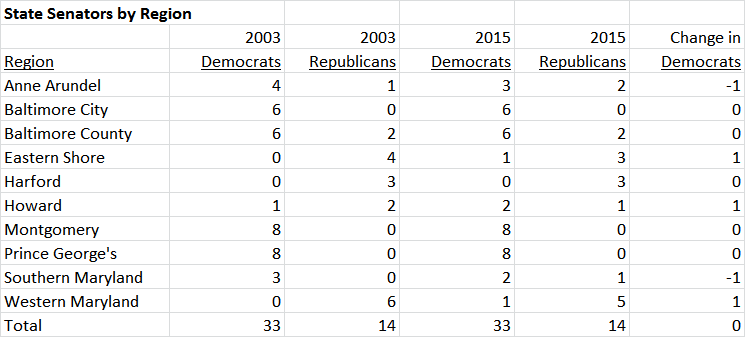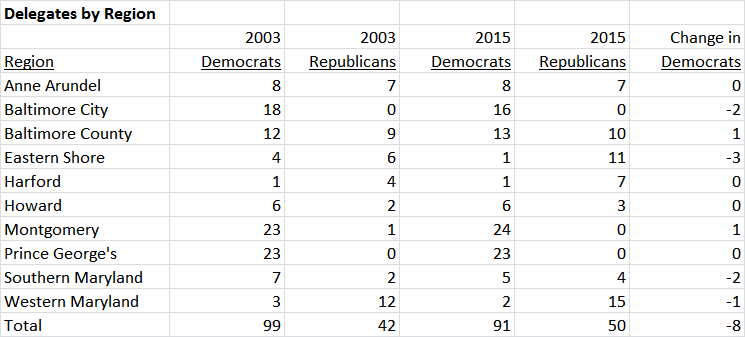By Adam Pagnucco.
The Maryland Democratic Party’s top goal is defeating Governor Larry Hogan. The Maryland Republican Party’s top goal is getting him reelected. But the context of the next election is not simply about Hogan and his Democratic opponent. The context also includes other state and local offices, and in that arena, the GOP is on the march.
To demonstrate that, we compiled data on party identification of office holders at the state and local levels in 2003 (the first year of Governor Ehrlich’s term) and 2015 (the first year of Governor Hogan’s term). The offices we examined are State Senate, Delegate, County Executive (including the Mayor of Baltimore), county councils and commissions, State’s Attorneys and Sheriffs. For Senators and Delegates we compiled results at the regional level (large individual counties and groups of small counties) because state legislative districts often cross over county lines. All local offices are reported by county.
Let’s look at State Senators first.

The party split of Senators is identical for both 2003 and 2015: 33 Democrats and 14 Republicans. There were no major regional changes between the two years. The imbalance in favor of Democrats is preserved in this category. (Note that the change numbers in the right column don’t add to zero because some regions overlap each other.)
Now let’s look at Delegates.

The GOP won a record number of Delegate seats in 2014, but their total (50) is not that much more than it was in 2003 (42). A few regional trends are apparent. The Democrats are down to one Delegate on the Eastern Shore. They are close to an even count in Southern Maryland, although that is because one of the area’s three legislative districts is split with heavily Democratic Prince George’s County. The two Democratic Delegates in Western Maryland come from a district that is narrowly drawn around the City of Frederick. Baltimore City has lost two Delegates who would normally be Democrats because of population shifts.
Despite these changes, the Democrats are firmly in control of the General Assembly and proved it by overriding all six of Governor Hogan’s vetoes. The REAL changes are taking place in local governments, far from the attention of Annapolis and Democratic officials in the party’s strongholds of the City of Baltimore, Montgomery and Prince George’s.
We’ll illustrate that in Part Three.
